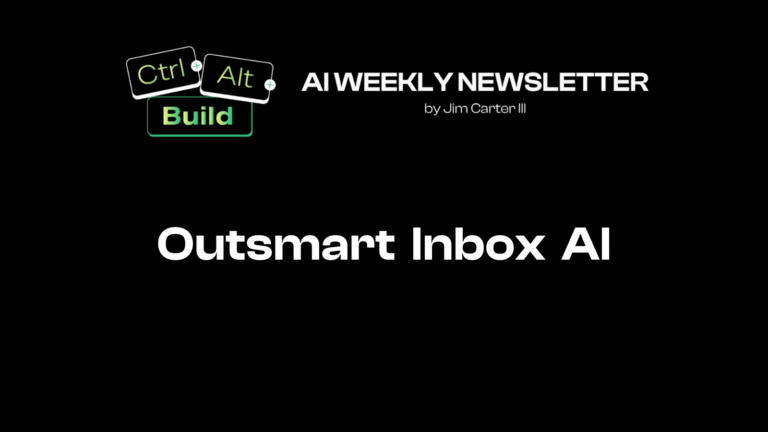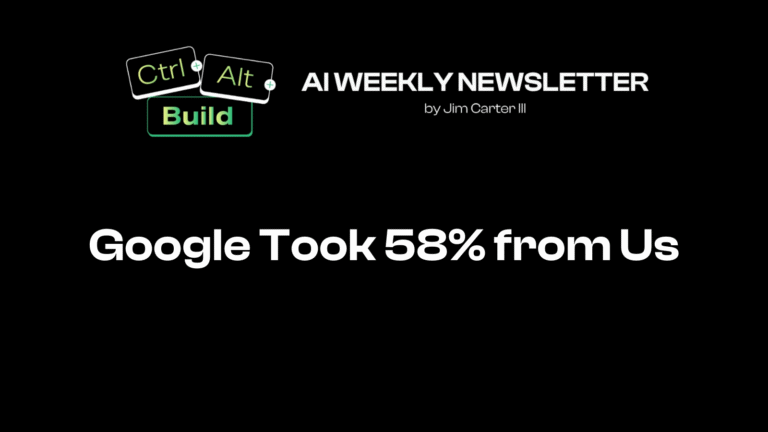🧠 A New Era of Autonomous AI
This isn’t just another AI tool. It’s a wake-up call for what “autonomy” in tech really means and why it’s time to pay attention.
Key Facts
- 🤖 First Fully Autonomous AI Agent: Manus manages tasks on its own without needing constant human direction.
- 🛜 Real-Time Web Interaction: It can browse the internet live and show its workflow transparently.
- ☁️ Cloud-Based Operation: Manus works even when you’re offline, notifying you when tasks are done.
When I first came across Manus AI, I had to do a double take.
Built by the Chinese startup Monica (a subsidiary of The Butterfly Effect), this isn’t your average chatbot.
There’s this vision we all have in our minds about AI.
It’s different for everyone, but for me it’s a combination of Jarvis from Iron Man and this idea of me speaking to life what I want to be real while AI figures it out for me.
Manus doesn’t wait for you to tell it what to do step-by-step. Instead, you give it a single prompt, something like “build me a market research report for a startup targeting Gen Z skincare” and it just… does it.
Not only does it research and analyze, but it also verifies its own work, makes it look good, and delivers it back to you.
No follow-ups. No micromanaging.
It’s like hiring a small team of specialists, researchers, developers, designers, analysts, except it’s one AI, and it works while you sleep.
Manus has already proven it can:
- Plan custom travel itineraries (complete with handbooks),
- Create full-on educational content like video presentations,
- Conduct deep stock market analyses with visual insights,
- Even source and evaluate B2B suppliers for businesses.
It operates using a “Multiple Agent Architecture” essentially, three internal AI agents that plan, execute, and verify each task like a self-contained team. That’s what allows it to operate end-to-end without getting stuck.
SO GOOD.
And yes, it’s cloud-based. So once it gets started, you can shut your laptop and go grab lunch. It’ll ping you when it’s done.
☄️ Why This Changes Everything
Until now, AI has been reactive: waiting for us to ask, then responding. Manus flips that dynamic. It takes initiative. It bridges the gap between what you want and how it gets done.
For solopreneurs, knowledge workers, educators, researchers, business owners, this is like giving your ideas a power suit and sending them off to execute themselves.
Even more intriguing? This level of innovation isn’t coming from Silicon Valley, it’s coming from China. That’s a huge moment in the global AI race. Many are calling it a “Sputnik moment” for AI, signaling a shift in leadership and influence on the future of tech.
Manus is still in invite-only mode. And while everyone is trying Manus, open source versions are starting to emerge fast.
This “Agentic-first” mindset is really becoming the new normal.
We’re entering an era where AI agents don’t just assist… they act. Which means ethics, accountability, and governance need to evolve fast.
Would you trust an AI like Manus to run part of your business? Where do you see it helping, or potentially hurting the future of work? I’d love to hear what you think.
🔍 Google Introduces AI Mode: A New Era of Search
Goodbye, blue links. Hello, real conversation. Google’s newest update might just change how we find and interact with information online.
Key Facts
- 🚀 Powered by Gemini 2.0: This advanced AI model handles complex reasoning and multimodal interactions like text, voice, and images.
- 💬 Conversational Interface: AI Mode provides detailed answers in a chatbot-like experience instead of just links.
- 🧩 Exclusive Access: Available to Google One AI Premium subscribers in the U.S. first.
Remember when online search meant scrolling through page after page just to find one decent answer?
Yeah, me too.
Google’s AI Mode isn’t just making search easier; it’s changing how we search entirely. Or at least that’s the arms-race they’re trying to keep up with and win.
We’re used to asking AI something like:
“What are the best stops on a road trip from NYC to LA, and when should I visit them?”
And Gemini feels just like all the others.
But what if you just could go back to remembering “to Google it”?
Then, instead of a list of links, you get a thoughtful, conversational response with real-time suggestions curated from multiple sources, plus the ability to ask follow-ups without starting over.
It’s a different kind of search.
One that feels less like querying a machine, and more like talking to someone who’s already done the research.
💥 Why This Is a Big Deal
At its core, AI Mode changes the search experience from passive to interactive.
Powered by Gemini 2.0, it can process text, images, and voice all at once. It runs multiple related searches behind the scenes (a method Google calls “query fan-out”) and synthesizes answers across real-time web content.
Think of it as Google Search… with reasoning skills.
This shift has massive implications, not just for users, but for anyone creating content online.
If AI Mode answers the question directly, where does your website fit in? If you’re a business, how do you stay visible in an interface that skips the clicks?
Remember last week when I wrote about how we’re seeing the need to start optimizing traffic for LLMs?
We don’t need to leap at every AI thing, just the ones that matter.
There’s also a broader shift happening here: Google is carefully rolling this out to premium subscribers first. It’s experimenting, listening, and refining. And it’s sending a signal to competitors like OpenAI and Perplexity.
We should all be taking notes.
🤝 Trust, Transparency, and What’s Ahead
Google is doubling down on accuracy, especially in high-stakes areas like health and finance. AI Mode includes source citations and is set to expand with richer visual responses, video integration, and smarter formatting.
This tells me two things:
- Google knows how powerful this is, and
- They’re moving carefully, trying to balance innovation with trust.
As someone who relies on search every single day, whether for research, strategy, or just curiosity, I’m excited by what this unlocks.
But I’m also watching closely.
And here’s what I’m wondering:
- Will this become the new normal for how we find and consume information?
- What happens to the web when the search engine becomes the destination?
- How do we adapt as creators, marketers, professionals… humans?
ICYMI 👉 My AI Slack Community Membership Is Open!
Join the conversation in my Slack community where we talk about these topics as a group and keep a pulse on everything happening.
I run this incredible private community for thought leaders like you who are interested in AI development and implementing it into their own personal and professional lives.
Right now, it’s open for you.
- 🤝 Networking & Collaborations
- 🧠 AI Insights & Tools Showcase
- 📆 Monthly Q&A “Office Hours” with me
- 📞 A 1:1 Welcome Call for us
- …and more!
Check it out here: jimcarter.me/slack 🔗


